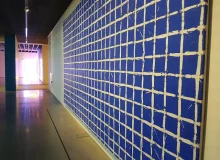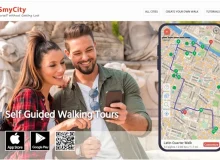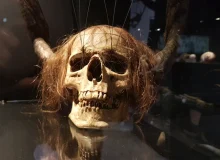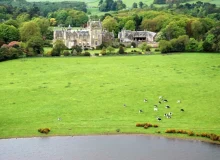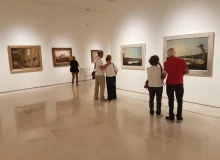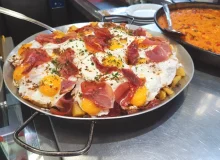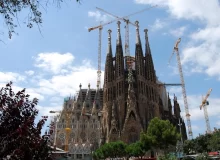Going with the Orinoco Flow
By Mike Gerrard
A rainbow humming-bird was flitting about in the palm-leaf eaves of our bedroom when we arrived. It was a big bedroom. It had to be: there were ten of us.
The house was on stilts and we were in hammocks hung from the beams. Our Venezuelan guide (‘My name translates as Virginia Spark-Plug’) demonstrated the technique for getting into a hammock without making a prat of yourself, or indeed falling out of the other side and onto the floor.

The previous night had been our last in beds for a while, at a motel in Tucupita, the capital of Guyana province in the north-eastern corner of Venezuela. It’s the launching point for trips into the Orinoco Delta, though very few visitors go there. Even in Tucupita itself, a steamy town of 60,000 people, we were the only white faces in sight. Breakfast was the delicious combination of cheese and honey on a roll, and strong local coffee. We bought our supplies, not least vast quantities of rum, and headed out to a scruffy little harbour to catch our boat.

The Orinoco was well over a mile wide at this point, a fringe of greenery and the outlines of palm trees showing the other bank just visible on the horizon. Our boat was 75 minutes late, having been in a car crash: it was being brought in by road to the harbour. We waited while other boats came and went, some bringing pigs which squealed as they were hauled out by ropes tied to their ankles and dumped in a truck for the market. Another unloaded fish in a red twine sack, and there was sugar cane, bananas, salted fish, tubers of some kind. The skies turned grey, then black, and everyone scuttled for shelter as the heavens opened and deposited rivers of rain on us, delaying departure for another hour or so.
Eventually the rain relented a little – it was the kind so heavy it makes you feel you could swim through it – and we headed off downriver towards the Caribbean. We skimmed the water at 20-30mph, slowing down to negotiate narrow passageways where waterlilies almost blocked the way through (the rivers are the roads in the delta), then roaring away as the river widened again, sending herons flapping into the sky.
The intermittent rain hit our faces like hailstones, but the sun was out when, almost three hours later, we arrived at San Francisco de Guayo. It was a small settlement on stilts, part Mission station part Warao Indian village. The Warao are the natives of the delta, about 24,000 of them, the second largest Indian group in the country.

‘They don’t get many visitors,’ Virginia told me, ‘only about once a month a small group like us will come through and stay in the guesthouse. But it’s so important that you guys come. The Venezuelan government, and most other Venezuelans, treat the Indians like shit. But when visitors come from abroad and treat them with respect and show an interest in their culture, it makes the government think twice, and also gives these people a sense of pride in their own heritage.’
The Warao are ‘the people of the canoe’, which is what their name means in their own language. They live on the edge of the mangroves and palm forests in palafitos, houses on stilts, and live by fishing and selling a few hammocks, carvings and baskets to their occasional visitors and down in Tucupita.

We were staying at the guesthouse owned by Kidro Rodriguez, known to everyone as Chino, and were only about 15 miles upstream from the Caribbean, in the second biggest delta in South America after the Amazon. Parrots flew overhead, vivid blues, reds, greens and yellows, and we lay back and mastered the use of the hammock, deciding they were one of mankind’s greatest inventions, as we swayed back and forth reading books and chatting. That night we ate catfish with onions, garlic and green peppers, and drank far too much of the smooth Venezuelan rum that tastes like brandy.
I was awake by 5.45, and quietly prised myself from the cocoon of the hammock and walked to the end of the wooden jetty while everyone else still slept. A full moon shone in the pale-blue sky over the guesthouse behind me, while across the river, downstream to the right, the sun was starting to come up through pink clouds. Three parrots flew over, high in the sky, chattering. A swallow skimmed the river, and a blue butterfly the size of a dinner plate flew across the river towards me.
Two fishermen arrived in a dug-out canoe and brought ashore four flat round fish, a beautiful light blue sheen on them. A woman emerged from the guesthouse with a pair of scales, weighed the fish and bought them. Supper. Gradually the rest of the group emerged from their hammocks, sat and enjoyed the peace, or dove in the river and swam the sleep away.

Later we rode out in the dug-out canoes, being handed paddles to share the work as we made our way through the mangrove alleys, past palm and banana trees, balsa wood trees, seeing more of the huge blue silky butterflies, others with white-tipped orange wings. We stopped as another canoe with a Warao family passed us, out on a fishing trip, the women shy.
Back at the guesthouse the women had made Pabellon criollo for us, Venezuela’s tasty national dish: refried beans, shredded beef, plantain and rice. Afterwards there was some chatter and excitement at a rotten tree in a clearing near the guesthouse, where some men were hacking at the wood with an axe. It was a Moriche palm, or had been, and in the soft wood of its stump they had found something. ‘It’s a Moriche grub,’ Virginia said, ‘they love them.’
A young boy came over carrying three of the wriggling white grubs in the palm of his hand, like miniature Michelin men. He picked one up, bit its little brown head off, and swallowed the body, like eating a jellybaby. We all knew what was coming next. ‘So,’ said Virginia, as more men and children ran back to the guesthouse with hands full of grubs, ‘who’s going to try one?’ The silence was deafening, while all around us people were pulling the heads off the grubs and eating them. ‘Go on then,’ said Jeff, ‘I’ll try one.’ He picked up a grub, and the Warao were gesturing for him to put it in his mouth. He eventually took a tentative bite, and spat it out at once, to howls of laughter, as Jeff reached for something to drink. ‘Bloody hell,’ he said, ‘it tastes like vomit.’ The Warao were in fits. ‘You know why they’re laughing,’ said Virginia. ‘They’re asking me to tell you that you’re supposed to bite off the head… you put the arse end into your mouth.’
When Jeff has recovered, we paddle across to the Mission, where most of the village’s houses are clustered. Here Virginia hands out photos taken by a previous group, and the villagers take them with great pleasure, laughing at the images, and posing happily for new photos… in fact begging to have their photo taken. ‘Please send the photos back to me when you get home,’ Virginia asks us, ‘they really like having them, and this way no one ever asks to be paid, it’s a genuine exchange.’
After we’ve tracked down everyone in the photos, we watch them string up a pinyada. This is a large doll we’d bought in Tucupita, and filled with sweets and gifts. It’s a Venezuelan tradition when someone has a birthday, and one of our group, Larry, was celebrating his birthday… well, more or less around then. The pinyada is yanked into the air on a rope strung between two high points, and children are blindfold in turn as they swing a stick and attempt to bash the pinyada, which is jerked up and down in front of them. Most swing wildly around, falling over as they miss, to everyone’s amusement. Eventually enough children start to hit the pinyada, and someone at last causes it to smash open, showering the ground with sweets and toys. Soon the grass is a wriggling mass of little children, trying to scoop up what they can. Later when we walk back to the boat, we see them engrossed with the simple gifts: yo-yo’s, cap pistols, dolls, toy cars. It gives me a warm feeling, not just from seeing the innocent pleasure of the children, but a glow from knowing that travel can still be good.

We potter away the next few days, paddling in the canoes, watching the wildlife at dusk on a trip to see howler monkeys, lounging in hammocks or going out for lunch and a swim on a speck of a desert island in the Caribbean. All too soon, though, it’s time to leave, and we take the reverse journey up through the delta, where kingfishers flit in front of the boat, herons and egrets fish in the shallows, and eagles soar overhead. We are halfway back when a double rainbow appears, reflected in the water like a double-arrow pointing towards our destination. But I felt sure that the pot of gold was the other way, in the place we’d just left.


